GOAL 8: Decent Work and Economic Growth
GOAL 8: Decent Work and Economic Growth
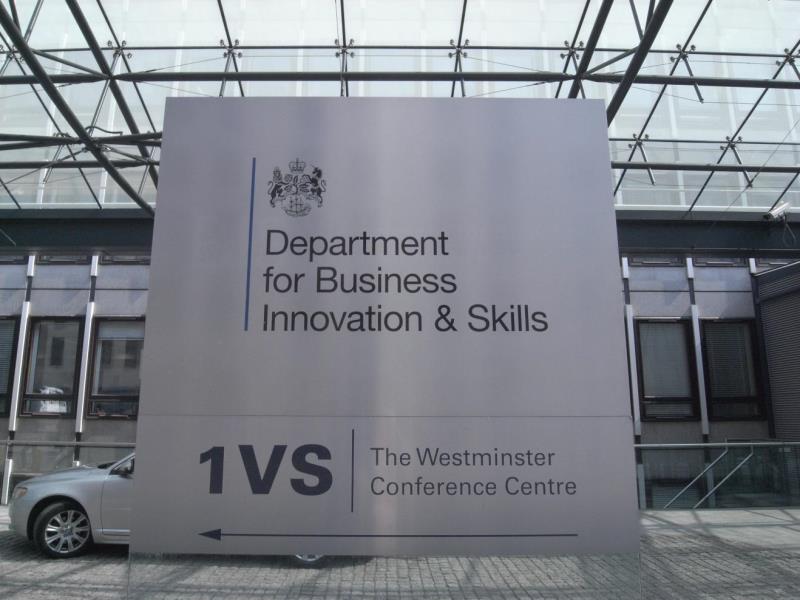
Home/Tag/GOAL 8: Decent Work and Economic Growth
UK Social Enterprise Report: BIS & OCS
UK social enterprise report: BIS & OCS
Department for Business Innovation & Skills(BIS)
Introduction
BIS is in charge of economic development affairs in the UK, including overall economic development, business, consumer rights, employment, EU affairs, extended education and skills (training), higher education (like our Department of Higher Education), law reform, technology & innovation as well as trade and investment. Although social enterprises fall under the jurisdiction of UKTI, its website has yet to publish related policy information. Furthermore, the application and management of CIC (Community Interest Company) is conducted through the CIC regulator. However, the organization does not fall directly under the BIS department but is rather one of the cooperative partners.
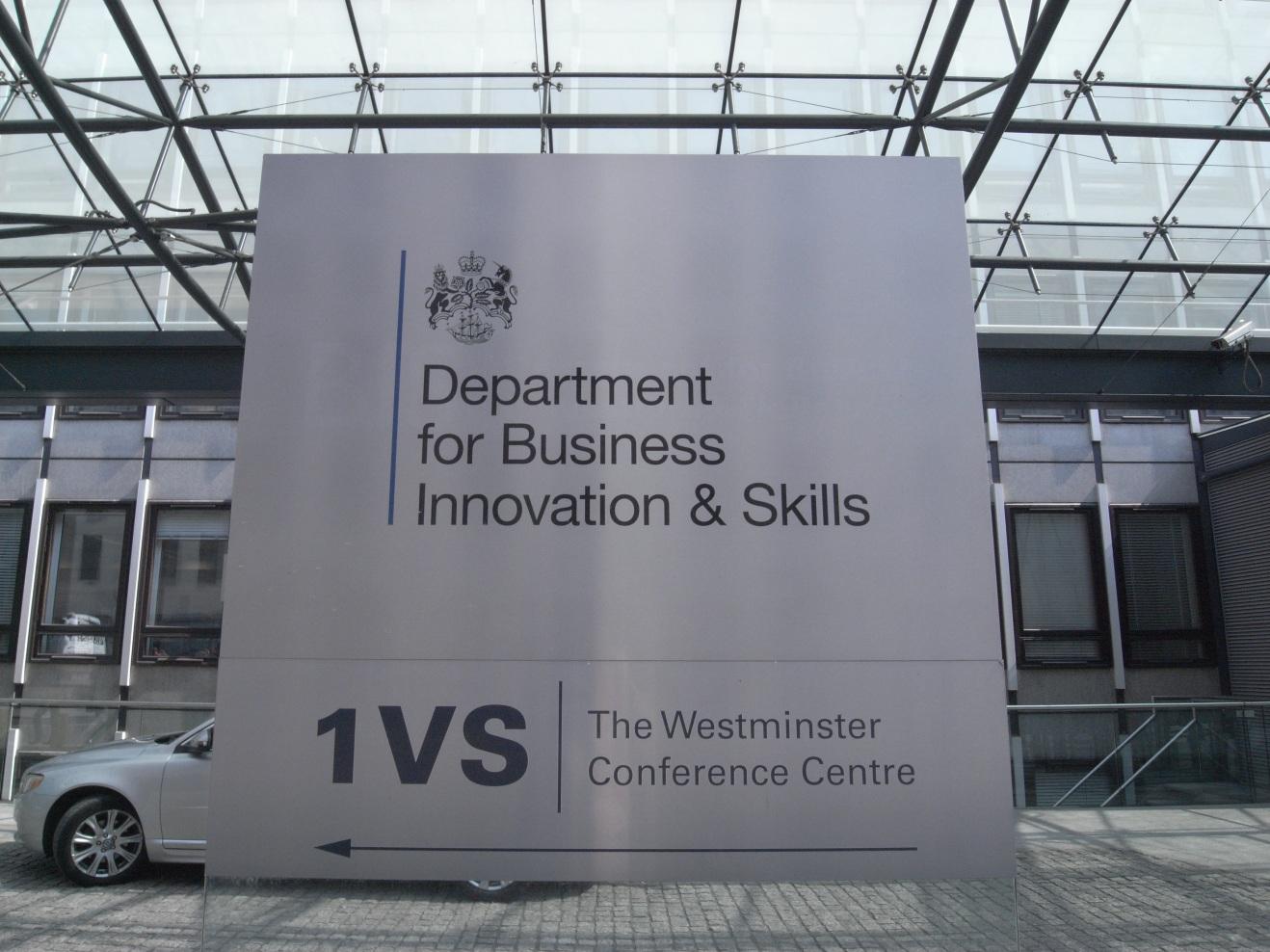
BIS’s office building is not far from Westminster Abbey, and judging from the exterior, it appears to be a new building, which forms an interesting contrast to the historic, archaic government buildings on Downing Street. After entering through the door, the interior of the building is indeed brand new, conveying a rich ambiance of innovativeness through its interior design. The building is not only BIS’s office but also a large conference center. Saeed Khan is a senior policy consultant at BIS. He welcomed us and led us to the conference room. Along the way, we passed numerous conference rooms featuring different structures, sizes and designs; light often shone through the ceiling to the interior and the chairs in corridor were all unique, each exuded stylish design. The framed slogan posters on the wall read “Create values”, “Design thinking” and “Innovation”; the headquarters embodied the taste of the founder, clearly communicating the characteristics of intimacy and like-mindedness between BIS and social enterprises.

BIS and Big Society
In addition to conducting affairs similar to MOEA in Taiwan, BIS also incorporates higher education, vocational training and labor employment, etc. Therefore, in terms of social enterprise development, it will consider these aspects besides business considerations. After the joint cabinet formed by Britain’s three major political parties came into power, it placed greater emphasis on the development policies of the social departments, thus apart from facilitating enterprise developments nationally, BIS also considers the growth of local social enterprises that have made distinct contributions to the communities as one of its priorities. However, due to work specialization, BIS inevitably focuses on the special organization of CIC.
BIS specializes in business development; hence, in order to increase dialogue channels with social departments, Secretary of State for Business, from 2013 Innovation and Skills Dr. Vince Cable convened and hosted dialogue meetings with the private sector to seek policy recommendations concerning social enterprises. The meeting takes place every three months, and the most representative organization is SEUK, which brings along relevant social enterprise representatives to attend the meeting. UnLtd also participates in the meetings frequently. Of course, if there are time-sensitive major agendas, BIS will convene such meeting to hold discussions, hoping to effectively help social enterprises resolve any problem they may encounter during development.
BIS encourages conventional businesses to invest in social enterprises as well. When we visited the meeting of G8 leaders in London at the time, one of the forums gathered over 140 senior managers from social enterprises to discuss how to establish a social investment market in order to foster the global development of social enterprises.
Community Interest Companies & CIC Regulator
CIC is a special company organizational form, where an organization must be registered at the Company House (similar to Taiwan’s Department of Commerce) as a company before applying to the CIC Regulator for registering as a CIC. In some ways, a CIC is just like a normal company, which can engage in myriads of business activities, but the most important attribute is that the company’s mission is not pursuing the highest profit but to generate more community interest during operation by hiring more youths, unemployed citizens or disabled persons, etc.
Different from the information we gathered beforehand, although BIS’s official website does not list CIS Regulator as one of its subsidiaries, but Saeed indicated that it is purely done so to emphasize the image of independency of the CIC Regulator. During the legislation process of CIC, since a key consideration of CIC registration is how to generate social interest, it is imperative to ensure its independence from the commerce department, thus the CIC Regulator was given a specific position by the parliament, and an independent department consisting of essential personnel from BIS must manage it. As far as BIS is concerned, CIC Regulator is an integral part of the social enterprise affairs team. Externally, CIC Regulator acts as an independent authority for CIC registration, evaluation and management.
Work specialization between BIS and OCS
BIS is in charge of CIC social enterprise affairs within the overall social enterprise policy of the British Government, while Office for Civil Society (OCS) focuses on broader dimensions such as social investment market. Although OCS is directly affiliated to the Cabinet Office, it maintains an equal position with BIS in promoting social enterprise policies, where both organizations perform their respective functions. This is also one of the characteristics of the British cabinet system, where all the Secretaries of State are MPs, so everyone is equal in status, and they all place great emphasis on communicating with the private sector. When various units directly under the Prime Minister’s Cabinet Office are implementing their services, their relationship with various departments is more like coordination and work specialization rather than top-down chain of command. For instance, if BIS discovers a problem that it is unable to solve during a meeting with social enterprises, it will discuss the matter with different departments to determine who will be responsible. OCS is merely one of the organizations partaking in the discussions.
During the process of promoting social enterprises, BIS has learned that the incorporation of more departments and effective integration will produce far better outcome for the overall policy than individual departments working independently.
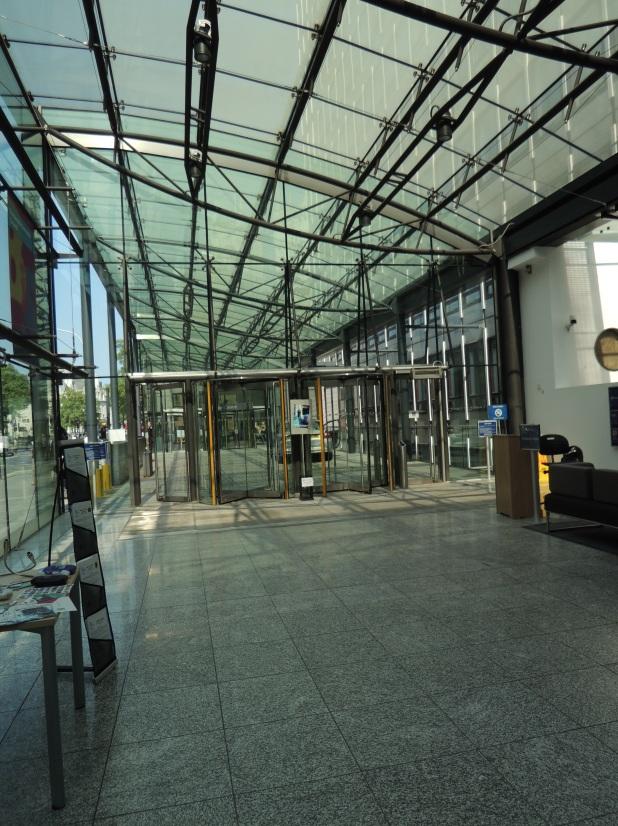
Is the cabinet system the ultimate approach?
We kept on asking Saeed about BIS and OCS because when we first read the information gathered in advance, we always thought that, from The Third Department Office proposed by the former Prime Minister to the current Office of Civil Society (OCS), they are the hub coordinating various departments to promote social enterprise policies. Hence, we wanted to know how BIS coordinates and supervises the related efforts. After repeated confirmation with Saeed, we realized that although OCS is the primary organization responsible for promoting The Big Society policy, the implementation aspect is actually delegated to various departments, where each department plans and executes its own area of responsibility. When various departments encounter problems and obstacles during the process of policy promotion, they will convene meetings to make discussions and resolve the issues. Organizations such as OCS, BIS and others remain equal in terms of position and they are responsible for executing the policies. Such arrangement is drastically different to the approach adopted in Taiwan. Taiwan’s social enterprise policies are still in their infancy, what sort of arrangement should we choose to suit our national conditions? How do we borrow from other countries’ experiences to minimize trial and error and avoid taking the long way around?
The Office of Civil Society (OCS)

Introduction
Social enterprise has always been the core target of the British Government. Tony Blair merged the social enterprise originally affiliated to the commerce department with the Third Department Office under the Cabinet Office in 2006 to promote social enterprise development. Although David Cameron created OCS when he came into office in 2010 to replace the Third Department Office, most of the original policy direction was retained. In addition, the “Growing the Social Investment Market: A vision and strategy” report was proposed to expand social investment and public venture capital investments as well as to revitalize the development of social enterprises. (Cheng Sheng-Fen, Liu Yu-Hsin: Social enterprise and employment for disadvantaged people – Strategy and challenge. Journal of Employment Security Biannually – Issue 2, 2012)
OCS is the highest-ranking organization for promoting social enterprise policies in the UK; however, its specific responsibilities are difficult to be ascertained from a single themed website. According to the website provided to us, its emphasis is placed on expanding social investment via the Big Society Capital.
OCS is subordinate to the Cabinet Office, which is located in the White Hall, the political center of Britain. The Prime Minister’s office is on Downing Street, just a few blocks away. Representatives who welcomed us in the archaic conference room with thick carpet were Ms. Aekta Mahajan and Sarah Hickey from OCS’s Social Investment and Finance Team. OCS has 14 such teams dedicated to different tasks. For example, the Social Action Team is responsible for solving social problems through action from the private sector; a new form of social enterprise was created in the form of Charitable Incorporated Organization, and there are affairs from other departments. Overall, OCS’s supreme guiding project is The Big Society. Just like any other department, the team’s primary objective is to find investments that can support the system.
Social Impact Bonds
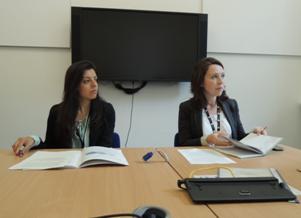
After confirming the purpose of our visit and understanding the internal responsibility delegation of OCS, they indicated that the focus of the team’s work is the social investment market, which the new cabinet have high hopes for since 2010. Since we have already visited SEUK and BII, we were given a general knowledge about the Big Society Capital and social investment market; hence, the discussion did not continue the theme of social investment market. (The structural diagram they presented was identical to that of SEUK, so we will not repeat the details)
Another important aspect is the Social Impact Bonds (SIB), which is an innovative tool for introducing social investment. It is a fund dedicated to investment in social impact (or social benefit). During the initial stages, the capital is invested to act as a source of funding for taking care of major social problems rather than following the conventional approach where the government sets aside budgets for this purpose. Private organizations commissioned to resolving the social problems (usually large foundations) are in charge of integrating different private groups or companies capable of offering solutions to design a performance-oriented operating structure. If the project eventually achieves the desired outcome, the government agency responsible for tackling the social problem will have to make payment including the amount of money invested, predesigned investment return, interest etc.
From a third party perspective, as far as SIB investors are concerned, although the goal of their investment is to resolve social problems, it is theoretically not a business model and will generate no profit. However, once their investee accomplishes the target (by solving a certain social problem, and the result is backed by quantified data), they can still receive adequate return on their investment and continue to invest in other social benefits. Investment involves risks, so all they have to do is carefully choose the right investee. If necessary, they also need to offer assistance to guarantee their return on investment – this principle is the same as conventional venture capital investment, but it realizes the aspiration of “making profit by doing good deeds”.
For the government agencies, major social problems targeted by SIB often involve many different authorities performing their duties based on the existing work specialization framework and by formulating their own budgets. Although the aim is to gather each individual effort to achieve the overall benefits, but frequently the result is far from the desired one. The SIB approach can effectively deal with an “interdepartmental” dilemma without the government having to carry out the project itself or be burdened with day-to-day management and scrutiny after formulating the budget, resulting in staggering administration cost. Under the SIB model, the government is only required to pay the projects that are “proven to be feasible”. For governments heavy in debt, this is without doubt the best way to improve budget efficiency. Everyone knows about the notion of “spending the money wisely” but few have answers for structural dilemmas. Now, SIB has introduced new hope to tackle this situation.
For organizations, agencies or companies that are dealing with social problems, joining SIB not only introduces funding from social investment, the things they do may not be significantly different from before, but the rendering of service will be much more performance oriented compared to previous government supported projects. In addition, a third party institution must appraise the outcome. If the expected goal is not reached during execution, they must accept professional guidance and intervention.
This is a new social investment tool and currently there are only a few case studies being implemented. Whether or not they will eventually achieve the desired performance and receive payment from the government remains to be seen. However, the innovative execution structure involving social investment has seized the attention of countries around the world. It was a pity that although we did gather information about SIB prior to our departure, we failed to perceive the inspiration of the new tool, so we were not able to make in-depth discussions about SIB at the time. Nonetheless, it is better late than never, thus when we returned to Taiwan we reinforced researches in this regard.
Work specialization and execution by government agencies
During the interview with BIS, the interviewee indicated that although OCS is subordinate to the Cabinet Office, under the cabinet system they do not directly manage other departments’ work but instead concentrate on matters that other departments are unable to complete. Under the “Big Society” policy, there is an implicit competitive relationship among various departments, and the cabinet is one of them. OCS’s focus on the social enterprise policy is not about supervision and integration; rather, each has its own work goals. The keyword should be “encouragement” not “leadership”, and further emphasis is placed on interconnections.
OCS concentrates on communication during work implementation, and the key aspect of communication is to listen to the voices of the society. Just like the Secretary of State for BIS, the Secretary of State for OCS Nick Hurd also regularly convenes meetings to open social dialogues. In addition to understanding the private sector’s thoughts about social problems, feedbacks for government policies are also collected, especially departments associated with social issues. Therefore, intermediary organizations that participate most frequently are larger groups or foundations, and they often become the best collaborative partners. OCS’s projects are handed over to intermediary organizations for implementation, connecting to smaller social enterprises and charity organizations, making it a useful to for policy promotion and a perfect lobbyist.
For example, SEUK’s Buy Social event involves accepting OCS subsidized projects. Before we were informed by SEUK and OCS that the project’s funding mainly comes from the government, we could not detect any trace of government funding from the promotional materials or event billboards, it just appeared to be a privately organized event. In contrast to the Taiwanese government’s emphasis on exposure in the promotional materials, this perhaps demonstrates a “difference in national conditions”.
The right position is not necessarily where the spotlight shines
Compared to the British governments’ push to promoting the social investment market framework to various heads of states at the G8, OCS representatives we interviewed seemed more conservative about the operation of the Big Society Capital and social investment market. They believe that the new attempt is just like the Social Value Act, both are still in the initial development stages, thus although the actual social benefits are worth looking forward to, they have yet to be materialized. They pragmatically strive to generate social benefits rather than trying to highlight the glory of the policy – this is a trait that we should ponder over. Buy Social is a part of British Government’s endeavor to promote social enterprise policy. In Buy Social’s promotional materials and event design, one can see that they take social needs and policy promotion into consideration, which is the ideal “embedded marketing”. When the private sector becomes part of the policy promotion framework, the legitimacy and outcome of the policy will naturally be less propaganda oriented.
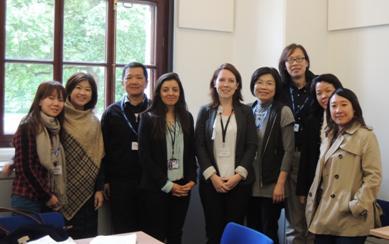
Thanks to the overseas visit opportunity, we were able to see how the British government and private institutions - especially the intermediary organizations – have established a good and profound relationship from policy formulation to implementation. Certainly, the number of organizations we visited was not a lot and the time was possibly too short, thus we did not perceive a great deal of conflicts; instead, the phrase “communication” kept on popping up, even in OCS, which is directly subordinate to the Cabinet Office. Conflict expressions about different philosophies and values are common in a democratic society, thus one can imagine that the promotion of social enterprise policy in the UK is not as peaceful as we perceive. This is evident from the criticisms made by Cameron and his cabinet about the social enterprise policies advocated by the Third Department Office - created by the previous administration - of being used as a tool by people to achieve other intensions. However, as the supreme authority for integrating social enterprise policies, the relationship between OCS and other departments is based mainly on “communication” and “work specialization”. Moreover, dialogues are constantly being struck with the private sector in order to incorporate their recommendations and designs.

This work is licensed under a Creative Commons Attribution-NoDerivatives 4.0 International License.
Please attribute this article to “Workforce Development Agency, Ministry Of Labor”.




